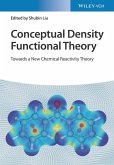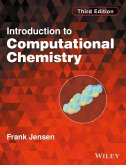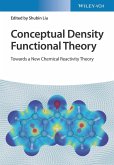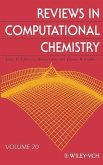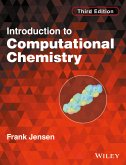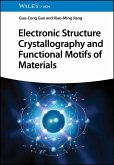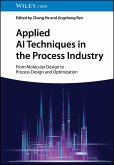Deep, theoretical resource on the essence of chemistry, explaining a variety of important concepts including redox states and bond types
Exploring Chemical Concepts Through Theory and Computation provides a comprehensive account of how the three widely used theoretical frameworks of valence bond theory, molecular orbital theory, and density functional theory, along with a variety of important chemical concepts, can between them describe and efficiently and reliably predict key chemical parameters and phenomena. By comparing the three main theoretical frameworks, readers will become competent in choosing the right modeling approach for their task.
The authors go beyond a simple comparison of existing algorithms to show how data-driven theories can explain why chemical compounds behave the way they do, thus promoting a deeper understanding of the essence of chemistry. The text is contributed to by top theoretical and computational chemists who have turned computational chemistry into today's data-driven and application-oriented science.
Exploring Chemical Concepts Through Theory and Computation discusses topics including:
Aimed at both novice and experienced computational, theoretical, and physical chemists, Exploring Chemical Concepts Through Theory and Computation is an essential reference to gain a deeper, more advanced holistic understanding of the field of chemistry as a whole.
Exploring Chemical Concepts Through Theory and Computation provides a comprehensive account of how the three widely used theoretical frameworks of valence bond theory, molecular orbital theory, and density functional theory, along with a variety of important chemical concepts, can between them describe and efficiently and reliably predict key chemical parameters and phenomena. By comparing the three main theoretical frameworks, readers will become competent in choosing the right modeling approach for their task.
The authors go beyond a simple comparison of existing algorithms to show how data-driven theories can explain why chemical compounds behave the way they do, thus promoting a deeper understanding of the essence of chemistry. The text is contributed to by top theoretical and computational chemists who have turned computational chemistry into today's data-driven and application-oriented science.
Exploring Chemical Concepts Through Theory and Computation discusses topics including:
- Orbital-based approaches, density-based approaches, chemical bonding, partial charges, atoms in molecules, oxidation states, aromaticity and antiaromaticity, and acidity and basicity
- Electronegativity, hardness, softness, HSAB, sigma-hole interactions, charge transport and energy transfer, and homogeneous and heterogeneous catalysis
- Electrophilicity, nucleophilicity, cooperativity, frustration, homochirality, and energy decomposition
- Chemical concepts in solids, excited states, spectroscopy and machine learning, and catalysis and machine learning, as well as key connections between related concepts
Aimed at both novice and experienced computational, theoretical, and physical chemists, Exploring Chemical Concepts Through Theory and Computation is an essential reference to gain a deeper, more advanced holistic understanding of the field of chemistry as a whole.
Dieser Download kann aus rechtlichen Gründen nur mit Rechnungsadresse in D ausgeliefert werden.
04
. Excited States in Conceptual DFT
15. Modeling the Photophysical Processes of Organic Molecular Aggregates with Inclusion of Intermolecular Interactions and Vibronic Couplings
16. Duality of Conjugated ¿¿ Electrons
17. Energy Decomposition Analysis and Its Applications
18. Chemical Concepts in Solids
19. Toward Interpretable Machine Learning Models for Predicting Spectroscopy, Catalysis, and Reactions
20. Learning Design Rules for Catalysts Through Computational Chemistry and Machine Learning
. Excited States in Conceptual DFT
15. Modeling the Photophysical Processes of Organic Molecular Aggregates with Inclusion of Intermolecular Interactions and Vibronic Couplings
16. Duality of Conjugated ¿¿ Electrons
17. Energy Decomposition Analysis and Its Applications
18. Chemical Concepts in Solids
19. Toward Interpretable Machine Learning Models for Predicting Spectroscopy, Catalysis, and Reactions
20. Learning Design Rules for Catalysts Through Computational Chemistry and Machine Learning



